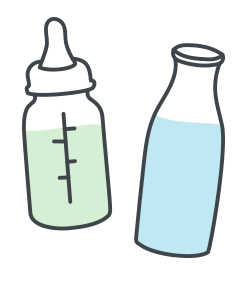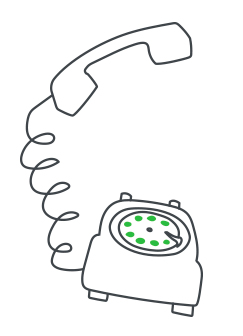Colic is a condition that is a concern for many parents. While the cause may be unknown, it is very important to know how to soothe your baby. Try not to worry; there are things you can do to help.
Colic
Not all crying is colic
Babies cry for a variety of reasons, but all crying stems from the same source: it is your baby’s only way of telling you that something is bothering him. It does not always mean that he is experiencing serious discomfort. Check first to see if he is too cool or warm, hungry, gassy, or tired, or if he needs a diaper change, all of which are easy fixes. However, a change in his crying pattern could be cause for concern. Trust your instincts, and call your health care professional if you are concerned.


Soothing your crying baby
You can comfort your baby by swaddling him, offering him a pacifier, or placing him in a swing. If these efforts do not work, you might want to try:
- Gently bouncing or walking him, or going for a car ride;
- Creating white noise (quiet music, vacuum cleaner, rainfall, running the clothes dryer or a fan). White noise is comforting to a baby as it reminds him of the womb.
When does crying qualify as colic?
If your baby is healthy and growing well, but cries intensely for hours, often around the same time of day, if his little face is red, his fists are clenched, his legs are curled up to his belly, and it is very hard to comfort him, then he might have colic.
It could be colic if your baby cries:
- 3 or more hours a day;
- At least 3 days a week;
- For at least 1 week.
Colic generally occurs at 2 to 3 weeks of age and decreases greatly after 3 to 4 months. Be patient, you will make it.
If you have any questions or concerns about your baby’s condition, talk to your health care professional.


Feeding your colicky baby
Most infants don’t require a change in feeding due to colic, so you should continue using Similac® Advance®.
Sometimes, however, colic may be due to a cow’s milk protein allergy. In that case, the Canadian Paediatric Society suggests a 2-week therapeutic trial of a hypoallergenic† formula where the protein is extensively hydrolyzed, like Similac® Alimentum®.
Similac® Alimentum® starts reducing colic symptoms due to protein sensitivity within 24 hours in most infants.‡
References:
Jakobsson I et al. Acta Pædiatr 2000;89:18-21.
Data on file. Study AC84. Abbott Nutrition, Colombus, Ohio. 2004.
Please note that this information is not meant to replace the advice of your baby’s health care professional who we recommend you contact if you are concerned, or before making changes to your baby’s diet.
Always be ready to ask for help
A good support system gives you a much needed break when you are overwhelmed by your baby’s crying. Ask for help from your partner or a family member to get relief or sleep when you need it. If the crying makes you feel like you might lose control, calmly and safely place your baby in a crib, and step away briefly to collect your thoughts and calm down. More often than not, all you need is a break… so take one.
Reference:
Canadian Pædiatric Society. http://www.caringforkids.cps.ca/handouts/colic_and_crying.
† “Hypoallergenic” does not mean "non-allergenic".
‡ Based on a clinical study with Similac® Alimentum® ready to use, without DHA and ARA. The results are from a small group of infants who were experiencing colic symptoms due to cow’s milk protein sensitivity.







